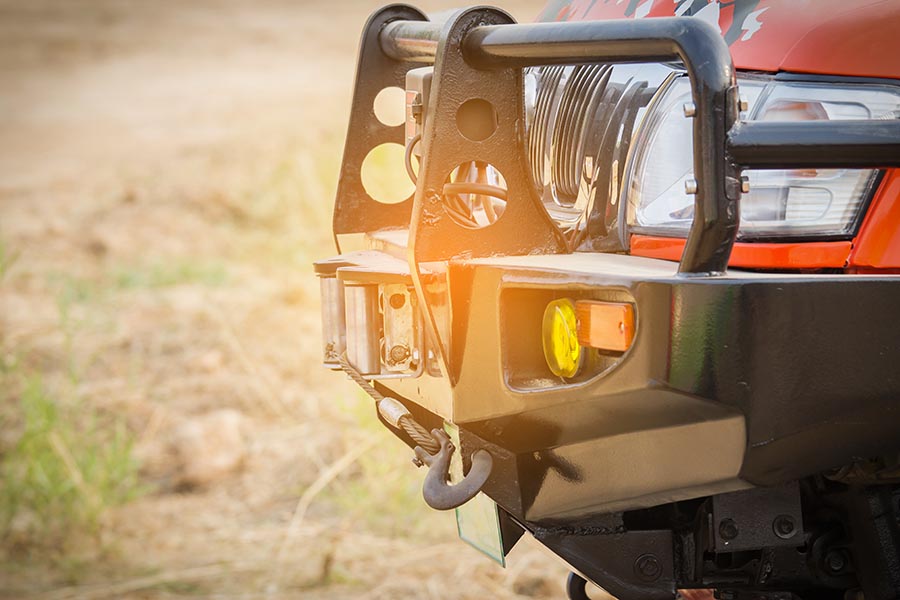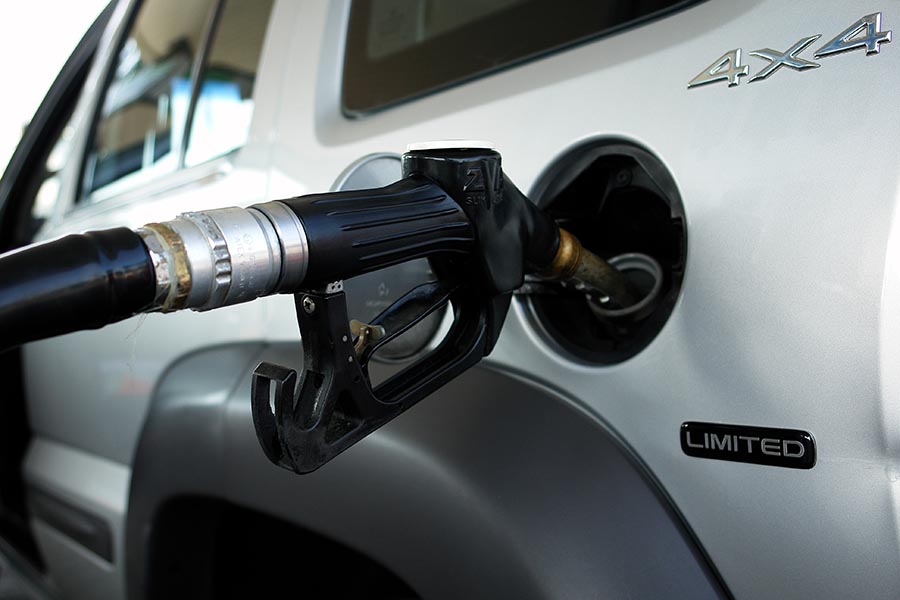July 5th, 2023
Just getting started with offroading? Let’s dive into the essential modifications required for a successful off-road touring adventure. It’s easy to get lost in the sea of available options, but we’ll cut through the noise to focus on what you really need. Importantly, we’ll differentiate between short-range and long-range touring requirements, ensuring you’re prepared for any off-road excursion.
The Fundamentals: Tyres and Suspension
The primary thing to address, and many seasoned tourers will agree, is tyres and suspension. When purchasing a 4WD, whether new or used, you’ll often find it equipped with highway or light truck tyres. While these are adequate for regular road use, they fall short when faced with the challenges of proper off-roading.
So if you intend to embark on off-road touring, a tyre upgrade is essential. It’s advisable to opt for a reputable brand, choosing between all-terrain or mud-terrain options, depending on your specific needs.
However, tyres and suspension form a crucial pairing in off-road touring, working hand in hand to deliver superior performance. Upgrading your tyres often involves choosing larger sizes, which necessitates more clearance. This is where a suspension lift comes into play, providing room for larger tyres and increasing the body’s height for better clearance.
While upgrading, ensure it’s an actual upgrade rather than a downgrade. Cheaper 2-inch lift suspensions may not match the quality of the factory suspension. Hence, it’s better to invest in mid-range suspensions to balance off-road capabilities and comfort.
Recovery Points
Next on the list are recovery points, particularly essential if you find yourself stuck during an off-road expedition. Front recovery points can be convenient, but a rear recovery point is essential. This piece of equipment will allow another vehicle to pull yours out of tricky situations, and they are relatively easy to obtain for most makes and models.
Bullbar
A bullbar is a crucial component of any touring vehicle, providing front-end protection. This is particularly the case here in Australia, where encounters with kangaroos and other wildlife are common. A bullbar can help prevent significant vehicle damage during these unexpected encounters. Installing a winch also gives a little extra peace of mind for recovering your vehicle if you get bogged.

Compressor and Tyre Deflator
Tyre deflators and compressors are key items for any 4WD. Deflators enable you to lower tyre pressure for better traction on different surfaces, especially on sand, and compressors allow you to re-inflate your tyres when returning to tarmac.
Snorkel
The need for a snorkel depends largely on the nature of your off-road touring. If you’re frequently crossing rivers or travelling in dusty conditions, a snorkel is a valuable addition, providing cleaner, cooler air to the engine and enabling deeper water crossings.It’ll also help you keep dust out of your air intake if you’re way outback.
Communications
For short-range touring, vehicle-mounted communications aren’t necessary. Handheld devices serve dual purposes, allowing for easy communication between vehicles and during hikes or around camps.
Essential Items for Long-Range Touring
For long-range touring, additional modifications become necessary.
Batteries
An auxiliary battery and a smart charger like a DC to DC charger are vital. The auxiliary battery can be used to power essential equipment like your fridge, without draining your main battery.
Fridge
A 12-volt fridge allows you to keep food fresh for extended periods. The size depends on the number of travellers — a 40-litre fridge is generally sufficient for two people, while a family of four might require a 50 to 60-litre fridge.
Cargo Space
Effective cargo space management is critical. For a wagon, consider a cargo barrier or a drawer system in the rear for efficient space utilisation. For a utility vehicle, a half or full canopy or boxes can provide secure, weather-resistant storage.
Long-Range Fuel Tank
Depending on the destinations and the distance between fuel stops, a long-range fuel tank can be very useful. While it’s an expensive modification, the ability to carry extra fuel offers significant peace of mind in remote areas.

Water Storage
Reliable water storage is also crucial. Many people opt for a built-in water tank, but jerry cans or other portable solutions can be just as effective. Don’t forget to include a method for purification if you plan to source water along the way.
Communications
Long-range touring requires more substantial communication systems. A high-frequency (HF) radio offers the ability to communicate over vast distances, even in remote locations with no cellular coverage. Additionally, a UHF radio is beneficial for short-range communication between vehicles.
Solar Power
For long-term off-grid camping, a portable solar panel system can be useful. This will allow you to recharge your batteries during the day, reducing the need to run your vehicle solely for charging purposes.
Essential Toolkit for Off-Road Touring
Last but certainly not least, a well-stocked toolkit is a vital part of your off-road touring setup. This is not just about spanners, screwdrivers, and spare parts – but also about products that can keep your vehicle in optimal running condition.
Lanox (MX4)
If you’re planning to traverse coastal areas or regions with salt flats, Lanox is an indispensable product to protect your vehicle’s underbody. This heavy-duty, anti-moisture, anti-corrosion lanolin lubricant is designed to combat the damaging effects of salt and other corrosive elements. By creating a protective layer, Lanox will keep the undercarriage of your vehicle in excellent condition, prolonging its life and performance.
Inox MX3
is a must-have for any toolkit. This versatile product is a high-quality anti-corrosion lubricant, and cleaner, and can get you out of any number of scrapes that pop up when you’re far from home. Whether you’re dealing with a stubborn bolt, a squeaky hinge, or an electrical component exposed to moisture, Inox MX3 is your go-to solution. It displaces, penetrates, and lubricates, ensuring the longevity and optimal performance of your vehicle’s components.
Like any successful journey, off-road touring is all about preparation. Investing in quality products like Inox MX3 and Lanox is an investment in the health of your vehicle and the success of your adventure. They’re as important as your vehicle’s modifications and upgrades – consider them your vehicle’s best friends when you’re far from home.
Final Thoughts
Remember that off-road touring isn’t a race but an experience. The right preparation and vehicle modifications will make your journey more enjoyable and less stressful. It’s also essential to understand your vehicle’s capabilities and limitations. Ensure that any modifications are completed professionally and comply with local laws and regulations.
By investing in these modifications, you’ll be well-prepared for any off-road touring adventure that comes your way. Safe travels!
